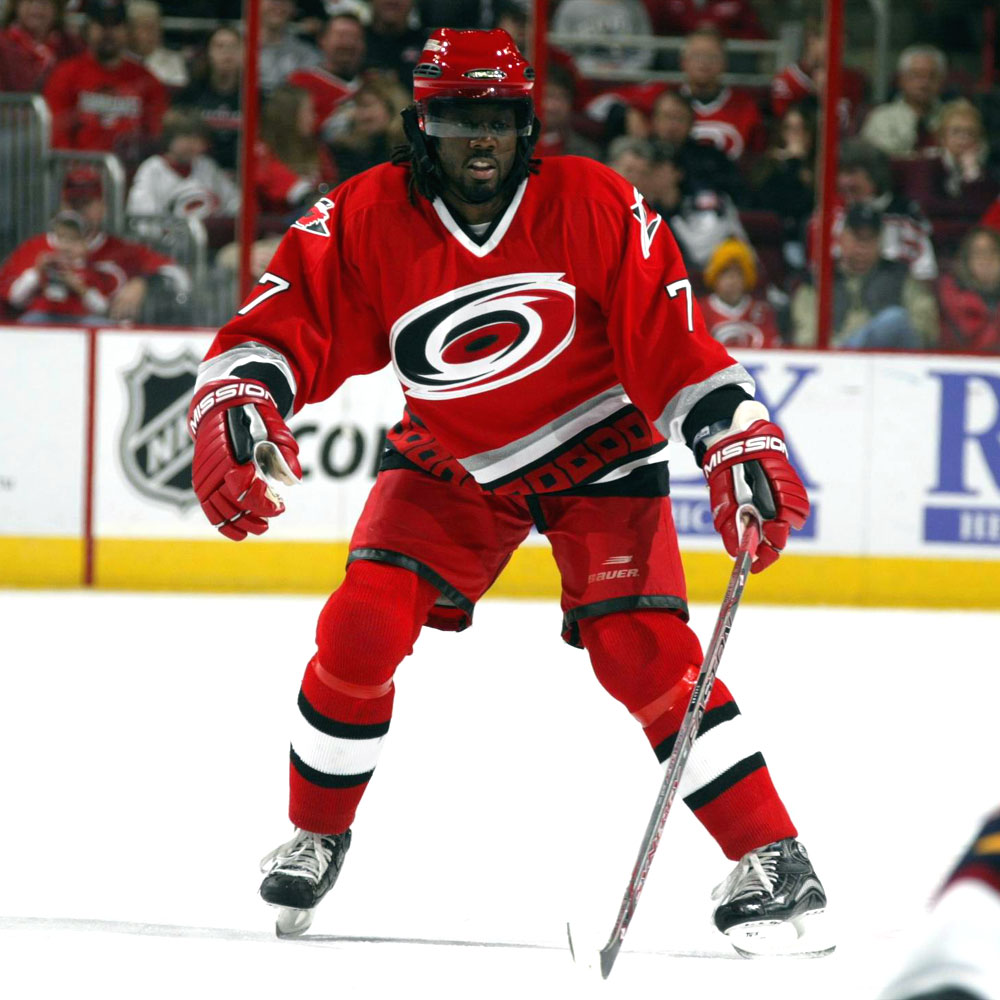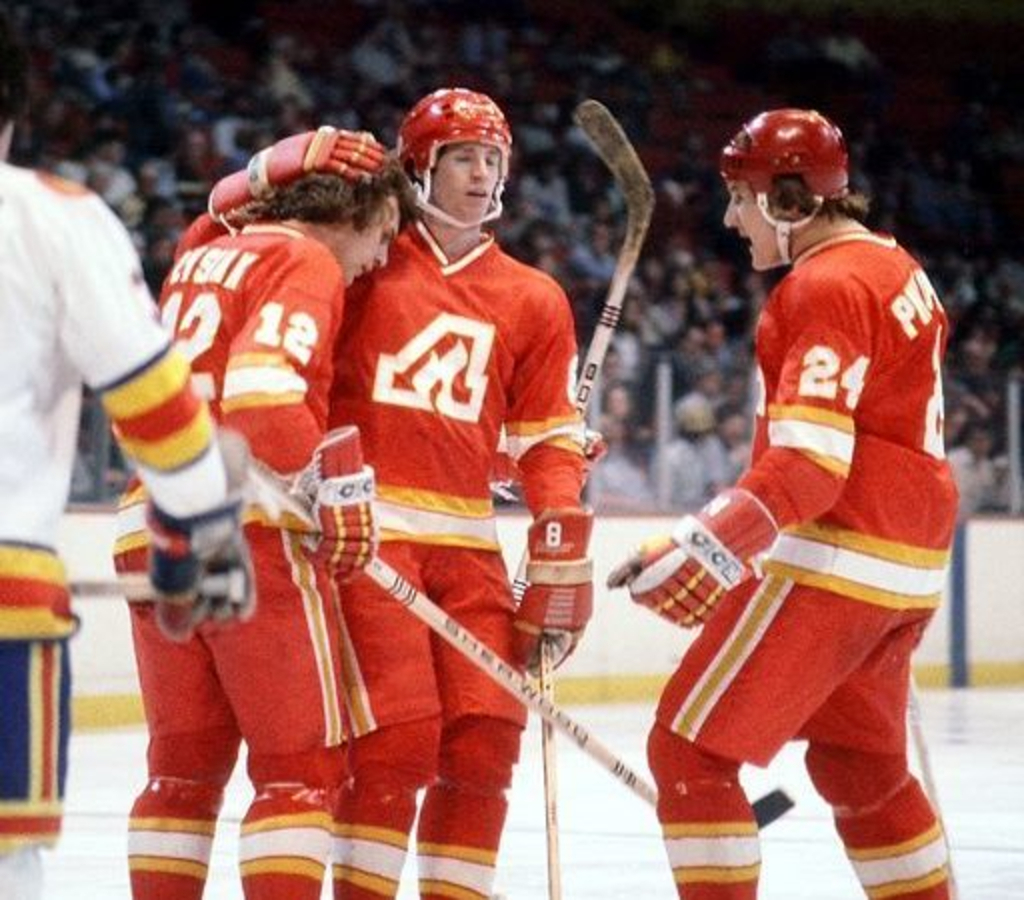The push to expand the NHL beyond 32 teams gains extra external force. This week, an Atlanta-based group, including former NHL player and NHL on TNT analyst Anson Carter, made a formal request for an expansion team in the Atlanta area. While this is simply a request—they have not been granted or promised a team—it represents a movement that has spurred since the start of 2024.
A group in Salt Lake City, led by the owner of the NBA’s Utah Jazz, made a similar request for an expansion team in January. These two cities have a major difference. While Salt Lake City is a new potential hockey market, like Seattle and Vegas, Atlanta is familiar territory, for better and worse.

The NHL has expanded into Atlanta twice. The Flames played there from 1972 to 1980 before relocating to Calgary, and the Thrashers called Atlanta home from 1999 to 2011 before relocating to Winnipeg and becoming the new Jets. But there is an argument that the city has never been given a fair shot. Here, we’ll look at how viable the city is for expansion. Perhaps the third time’s the charm.
Look at the Potential Ownership Groups and Locations
First, let’s look at the group that made headlines recently. Carter, a longtime resident of Atlanta, represents Alpharetta Sports and Entertainment Group. This group, with the support of local officials in Alpharetta, has partnered with the insurance company New York Life to build an arena at the site of North Point Mall.
Carter said he had been involved in bringing hockey back to Atlanta for quite some time. He said he has discussed the concept with NHL Commissioner Gary Bettman since 2019.

However, the Carter group is not the only group seeking an NHL team in Atlanta. A second group has been working toward having an NHL team play in Forsyth County, about half an hour north of Atlanta proper, for quite some time and has preemptive deals in place.
Related: NHL Expansion After Seattle
The planned arena for this group would be at a development called The Gathering at South Forsyth. The venue’s proposed capacity is around 18,000 seats. So, this group’s development plan is about six miles from North Point Mall.
Forsyth County officials have been confirmed to have visited the NHL headquarters and toured UBS Arena, the home of the New York Islanders. While this has not been explicitly said, it’s pretty apparent they’re actively searching for inspiration for what a Forsyth arena could look like. One of the newest arenas in the NHL is a good starting place to do that.
County officials voted to allocate $350 million toward the arena and $40 million toward a parking deck. This funding comes on the condition that the ownership group lands an NHL team. There are also other stipulations:
- The hypothetical NHL team must stay in the arena until all debts are paid off
- The development includes 1,800 multi-family homes, and selling these homes will help fund the cost of the franchise
- The hotel excise tax must be raised by between 5% and 8% – this includes county and state approval
Again, to reiterate, the NHL has made no guarantees that a team is on the way. The proposal even acknowledges this. This group is very far along in its process of laying the foundation for a new team.
Two very strong candidates to own a team must be encouraging for the NHL. While it sounds obvious, it can never be emphasized enough how important strong ownership factors are to a franchise’s success.
While the location may seem odd, Alpharetta and the suburbs north of Atlanta have grown in recent years. The Atlanta Braves took notice as they left Turner Field in downtown Atlanta for a stadium at The Battery in Marrietta. Hockey is choosing to follow in those footsteps.
Sounds Great. But Can Hockey Work in Atlanta?
Having multiple ownership groups with a plan is a great sign. Having public backing, too, is even more promising. But what makes this attempt different from the others? The team needs to have support from the general public.
The only thing that matters to the average fan is that there were NHL teams in Atlanta, but now there are not. Therefore, hockey and Atlanta are destined never to mix. It’s not that simple, at least in the full history of the NHL in Atlanta.
When the Flames were in Atlanta, it was an attempt simply ahead of its time. Attendance peaked at just over 14,000 in the Flames’ second season, and it was all downhill from there. The last three seasons saw attendance hover around 10,000. Even then, evidence shows the profitability hinged on the inability to secure sufficient television revenue rather than attendance. (from ‘Flames Boss Serious About Selling Franchise,’ Montreal Gazette, April 16, 1980). Regardless, 10,000 fans per game was unacceptable in any era.

The lack of public interest can be reasonably viewed as a clear-cut explanation for the Flames’ demise. The same cannot be said for the Thrashers. Across the United States, the appetite for hockey had increased, and Atlanta was no exception. The hype was there when the Thrashers arrived in 1999 – they averaged 17,206 fans per game that first year. That attendance dropped off as the team mightily struggled on the ice.
As the team improved, so did attendance. The lone year the Thrashers made the playoffs, 2006-07, was their best year for attendance since their inaugural season, with 16,240. Had the Thrashers maintained their success and hung on to star players such as Ilya Kovalchuk, perhaps attendance would have continued to go up. That never happened. Stars departed, the team declined again, and the fans slowly started to stay away as well.
However, attendance figures are not always strictly dependent on public apathy towards the sport. There are other factors. A huge topic of this story has been ownership. For those who followed the Thrashers, it’s very fitting how that’s the case.
Atlanta Spirit Group became notorious for their lack of attention to the hockey team they owned. All their efforts went into the Hawks of the NBA. There’s also the argument of the economic downturn of the late-2000s. Times got tough, and there was less desire to see a team that was not very good. That said, the right ownership group can help persevere through all this. After all, the Hawks faired much better at the gates during that time. Did Atlanta care more about basketball? Maybe, but the Hawks were also a consistent playoff team with some star power.
The point is that investment matters. How viable would another team in Atlanta be? It looks like the answer is very viable. A team led by dedicated hockey people encourages fans to be dedicated hockey people, too.
